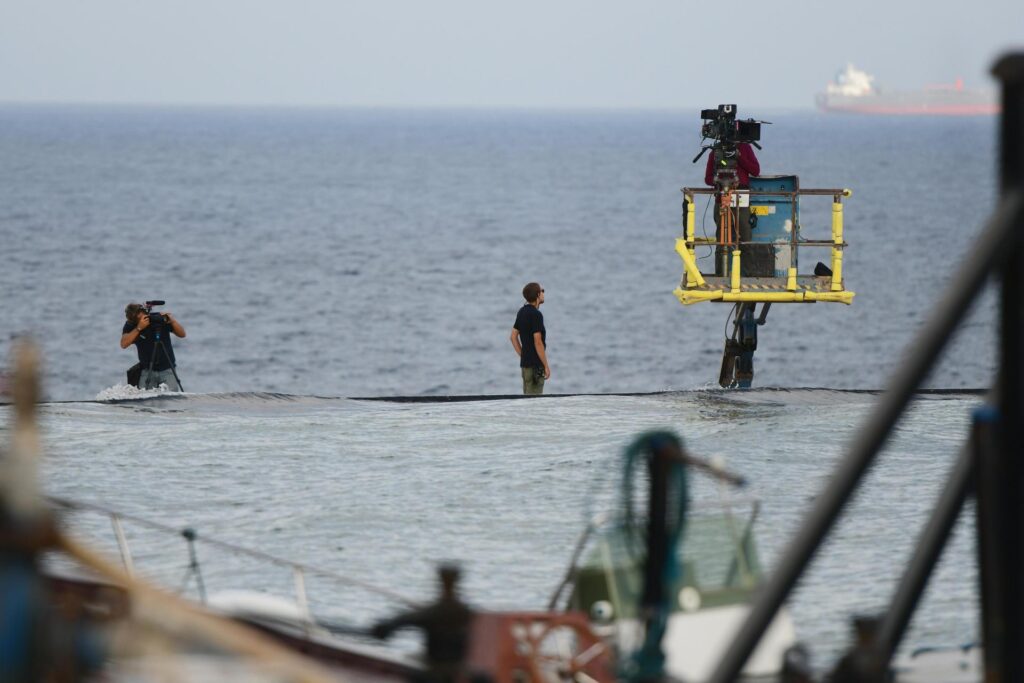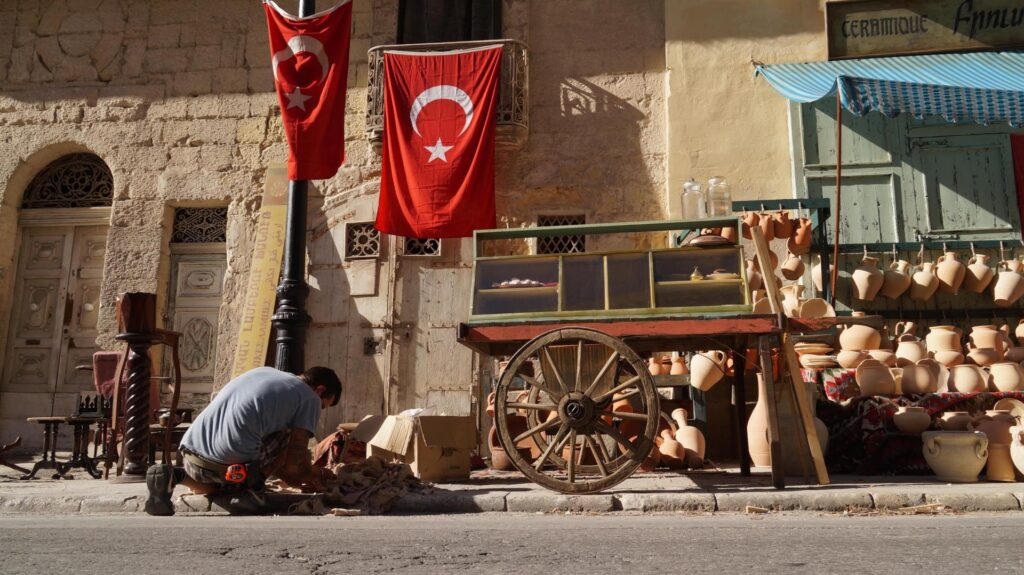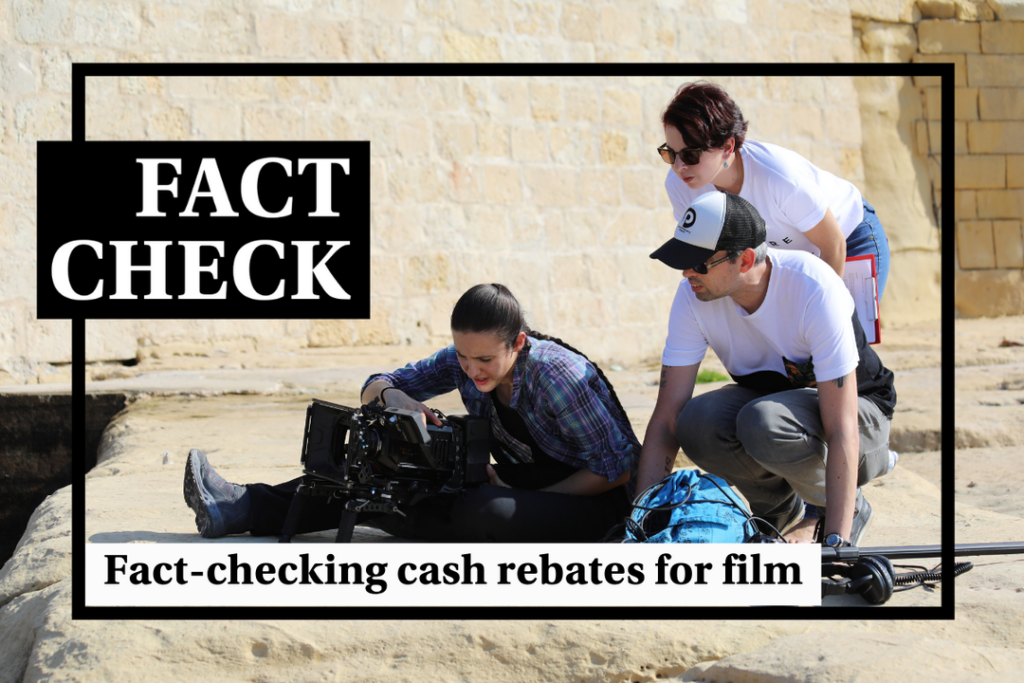Malta’s cash rebate scheme for film productions has raised eyebrows over recent months, with international film and TV productions now being offered amongst the highest rebates in the world to bring their work to Malta and employ local service providers.
Critics say that the funds would be better spent on investing in local filmmakers and nurturing an indigenous film industry.
Authorities counter by saying that while the incentives are necessary for Malta to compete with international players, they also support the growth of Malta’s film industry by providing jobs and opportunities for local filmmakers and operators.
This, they say, is in addition to the economic benefits that these film productions bring.
The question remains – do financial incentives help grow the local film industry and the local economy?
What are Malta’s incentives?
Malta’s cash rebates were first introduced in 2005 when the government of the day set up a scheme offering international producers rebates of up to 20% of costs for on-screen talent, capped at a maximum of €200,000.
This was increased to 25% (with an additional 2% if certain criteria are met) in 2013 and then up to a hefty 40% in 2019.
The €200,000 capping was also upped to €12m for above-the-line costs, meaning actors, producers and directors. Meanwhile, the eligibility for below-the-line costs such as crew members was extended to include non-EU nationals.
The cash rebate is open to feature films, documentaries or TV productions that are spending a minimum of €100,000 in Malta and are “partially or wholly” carried out in Malta. These productions are eligible for a 30% rebate but may be awarded an additional 5% if Malta features as Malta or if local facilities are used in the production.
A further 5% – to reach the full 40% rebate – is awarded if the production is deemed to meet a “maximisation of local resources” clause. In practice, this means that a minimum percentage of crew members must be locals.
The guidelines for the rebate highlight that this final 10% is awarded at the Film Commissioner’s discretion. Insiders who spoke to Times of Malta said that the full 40% rebate is almost always awarded, although this could not be independently verified.
Some small-budget productions considered “difficult” may receive even more, with the Film Commission offering up to 50% for productions in Maltese and those that are experimental or unlikely to achieve commercial success.

How do Malta’s incentives compare to others?
Most countries aspiring to operate within the international film industry offer some form of financial incentives to attract foreign productions. Direct comparisons between countries are difficult to gauge since the nature of expenses and productions that qualify for the rebate often vary from one country to another, as do the nature of the incentives themselves.
Most countries opt to offer tax credits or cash rebates, as in the case of Malta.
Likewise, the strings attached to the incentives often vary, particularly in terms of the requirement to employ local crew members. Local film producers told Times of Malta that Malta’s offer of 5% for productions to employ local crew members is relatively low, with several countries often offering a larger slice of the cake to producers willing to work with locals.
Malta is reportedly the third European country to offer a 40% rebate, following in the steps of Italy and Greece. Several other European countries offer slightly lower tax credits of between 30% and 40%, including Ireland, Estonia, Poland, and the Netherlands.
Nevertheless, some industry insiders have described Malta’s offer as “probably the most generous cash rebate in the world”, pointing to the fact that Malta’s rebate also applies to expenses incurred outside of Malta.
Do incentives attract new productions?
Unsurprisingly, several studies show that financial incentives are a great help in attracting productions to a particular locality, sometimes even at the expense of other cities in the same country. Several US insiders point to an ongoing arms race amongst different US states, each seeking to undercut one another by offering more attractive incentives.
A Council of Europe report found that an immediate result of financial incentives is “an increase in production levels to a point where full (or almost full) capacity utilisation is reached”. Financial incentives, the report argues, encourage productions to stay in Europe, help smaller countries become more active in co-productions, and are linked to above-average growth in production spend.
An analysis of the Greek and Cypriot film sectors argued that recently-introduced funding incentives encouraged global companies such as Netflix, Disney+ and Apple TV to shoot in Greece throughout the pandemic, “taking advantage both of incentives and the appealing Mediterranean locations”.
The impact on Malta also appears to be pronounced. A 2015 paper on Malta’s film industry reveals that there were 34 international films shot in Malta in the nine-year stretch between 2005, the year in which cash rebates were introduced, and 2014, compared to 27 films in the previous nine years.
However, the Film Commission’s website only lists a further 11 films shot in Malta between 2015 and 2022.

Do incentives offer bang for the buck?
Advocates for incentives say that they provide good value for money, bringing in more money than is spent on the incentives themselves and generating more income through spillover effects such as new jobs and new services or opportunities indirectly linked to the film industry.
Many film scholars are less convinced, arguing that tax incentives have mixed results at best or that countries tend to spend more money on tax benefits than they generate.
One study into the US film industry finds that although incentives are generally more impactful when used by TV series rather than feature films, they nonetheless are “generally ineffective at creating industry clusters or inspiring economic development” and ultimately have “almost no effects on employment, establishments, average wages, or total wages in motion picture production”.
Several other studies reach similar conclusions, finding that incentive programmes have “no statistically significant effects” on employment growth. A review of the film credit programme in the state of Connecticut, one of the largest such programmes in the US, found that it lost over half a billion dollars over the last decade.
One US think-tank described film subsides as “a wasteful, ineffective, and unfair instrument of economic development” with few benefits for locals.
As a result, several US states are rethinking their rebate scheme, with some scrapping them altogether, while others up them further in an attempt to stave off competition from neighbouring states, arguing that removing the subsidies would make it impossible to compete in the industry.
European studies tend to be more ambivalent. A study into France’s financial incentives said that they are “too complex and expensive as well as too ineffective”, however an analysis of Estonia’s cash rebates found that the impact was “broad and wide-reaching”, with industries such as construction and hospitality reaping the rewards.
Is this also the case in Malta?
Research into Malta’s industry is scarce. One local study found that the film industry was leaving €1.70 in Malta’s coffers for every Euro spent through cash rebates, concluding that the industry left €68m in the economy in 2021.
However, this study was carried out in 2021, before the rebate’s capping was upped to €5m. It is unclear how this would have affected the outcome of the analysis.
Meanwhile, Tourism minister Clayton Bartolo has claimed that the film industry generated over €85m, “providing jobs to 900 Maltese people and 1,000 foreigners”.
The source of Bartolo’s figures is unknown. Questions sent to the Tourism ministry to clarify this remain unanswered at the time of publication.

The most recent official data shows that there were 1,695 people working either full or part-time in the broader film and TV sector at the beginning of this year. However, this includes several roles that are not linked to the film industry itself and are unlikely to have been impacted by the presence of international film productions, such as TV broadcasting and music publishing.
To date, no comprehensive study on the economic impacts of the film industry has been carried out and authorities remain tight-lipped when asked about rebates, simply saying that they generate millions of euro in economic activity.
Verdict
Too little research into Malta’s film industry has been carried out to conclude whether or not cash rebates are having a positive impact on Malta’s economy or local film industry.
International research on the topic reveals mixed results, with several studies showing that rebates are often ineffective. However, some international industry experts argue that removing rebates would eliminate any potential competitive advantage that a locality may have.
Local authorities repeatedly say that the rebates are beneficial, but the source or reliability of the data used to back this up is not clear.
The Times of Malta fact-checking service forms part of the Mediterranean Digital Media Observatory (MedDMO) and the European Digital Media Observatory (EDMO), an independent observatory with hubs across all 27 EU member states that is funded by the EU’s Digital Europe programme. Fact-checks are based on our code of principles.
Let us know what you would like us to fact-check, understand our ratings system or see our answers to Frequently Asked Questions about the service.


